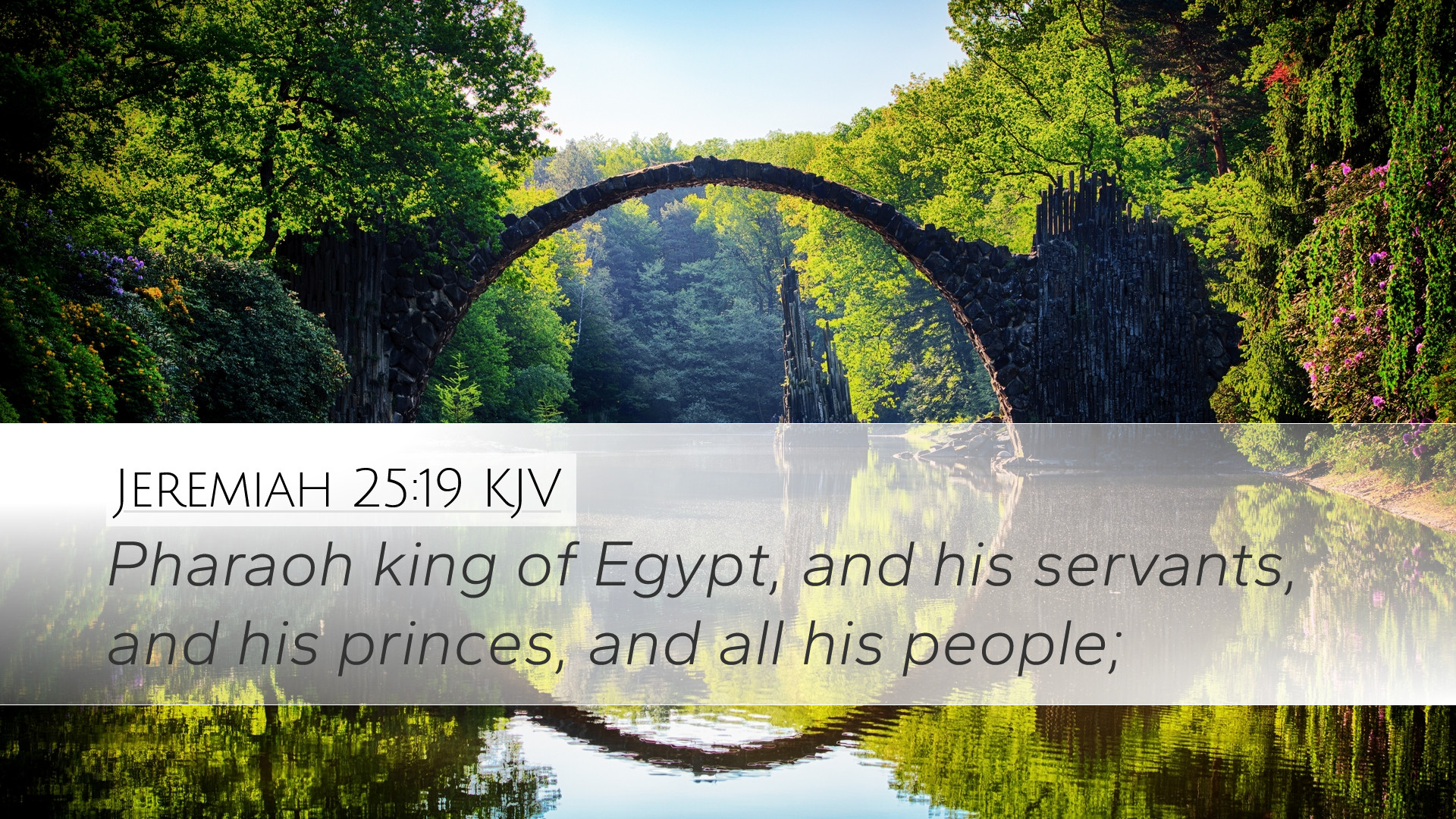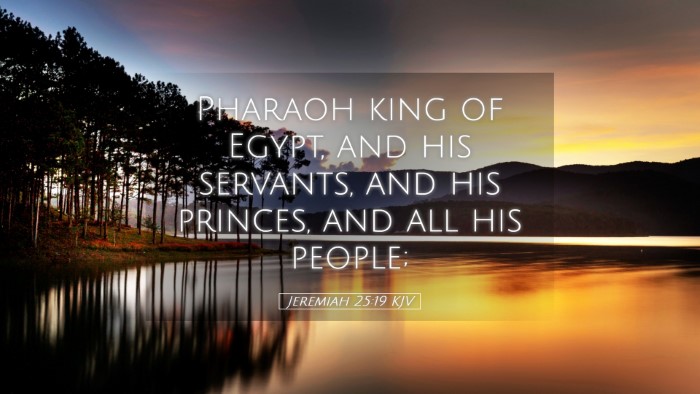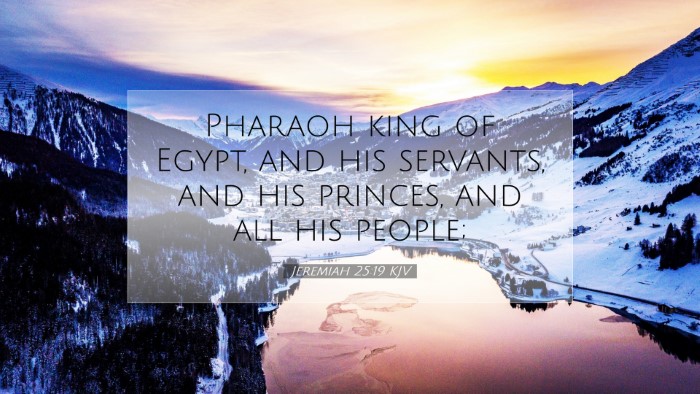Commentary on Jeremiah 25:19
Verse: Jeremiah 25:19 - "And Pharaoh king of Egypt, and his servants, and his princes, and all his people;
Introduction
This verse, part of a larger prophetic discourse, underscores the intricate relationship between the nations and God's sovereign will. Prophets often addressed both the immediate audience and the broader implications for future generations. In this commentary, we will glean insights from renowned public domain commentators like Matthew Henry, Albert Barnes, and Adam Clarke.
Contextual Background
Jeremiah prophesied during a tumultuous time in Israel's history. The Babylonian Empire was rising, and surrounding nations were caught in the geopolitical struggles of the era. God’s message through Jeremiah outlines judgment and warning, highlighting the consequences of turning away from Him.
Insights from Matthew Henry
Matthew Henry emphasizes that God's judgment is impartial and will reach all nations. He notes that the mention of Pharaoh, who represents Egypt, symbolizes the strength and power that seems formidable to Israel. Henry explains that Egypt, historically known for its richness and military might, stands condemned alongside other nations. This condemnation signifies that none, regardless of their social structure or military power, can escape God's decree.
- God's Sovereignty: Henry illustrates that God's will supersedes all human authority. Pharaoh's power is juxtaposed against God's ultimate judgment.
- The Universality of Judgment: The verse serves to remind readers that God's judgment does not favor any nation or person; it is universal.
Insights from Albert Barnes
Albert Barnes offers a detailed analysis of the historical context around Egypt and its significance in Jeremiah's vision. He notes that Pharaoh, as the king of Egypt, represents both a literal monarch and a metaphor for spiritual incompleteness and reliance on worldly strength rather than divine guidance.
- Pharaoh as a Symbol: Barnes highlights Pharaoh’s role in biblical history as an oppressor of God's people, suggesting that his mention serves as a reminder of the human tendency to rely on human power rather than divine support.
- Implications for Leadership: The failure of Pharaoh and his princes serves as a warning to present-day leaders about the consequences of leading nations away from faithfulness to God's commands.
Insights from Adam Clarke
Adam Clarke provides a comprehensive examination of the verse, pertaining to Egypt’s socio-political standing at the time of Jeremiah. He elaborates on the character of Pharaoh and the influence of his reign, linking it to the broader implications of idolatry and rebellion against God.
- Cultural Relevance: Clarke discusses the cultural practices of Egypt, warning that their idolatry and rejection of God led to their downfall.
- Lessons in Faith: He draws parallels to the modern Christian context, encouraging believers to observe the lessons from Egypt's history and to remain steadfast in faith to avoid similar fates.
Theological Implications
The theological implications of Jeremiah 25:19 speak profoundly to contemporary audiences, urging recognition of God's sovereignty over all nations and leaders. Both Henry and Clarke convey the urgency of aligning oneself with God's will and acknowledging that reliance on worldly powers may lead to spiritual desolation.
Conclusion
In closing, Jeremiah 25:19 serves as a reminder of the transience of earthly power and the enduring nature of God’s judgments. Pastors, students, and scholars alike can glean enduring principles from this verse that challenge them to examine their own reliance on worldly authorities and encourage a firm commitment to God's truth.
The insights from public domain commentaries illuminate the richness of God’s word, inviting believers to apply these lessons for personal and communal spiritual growth.


